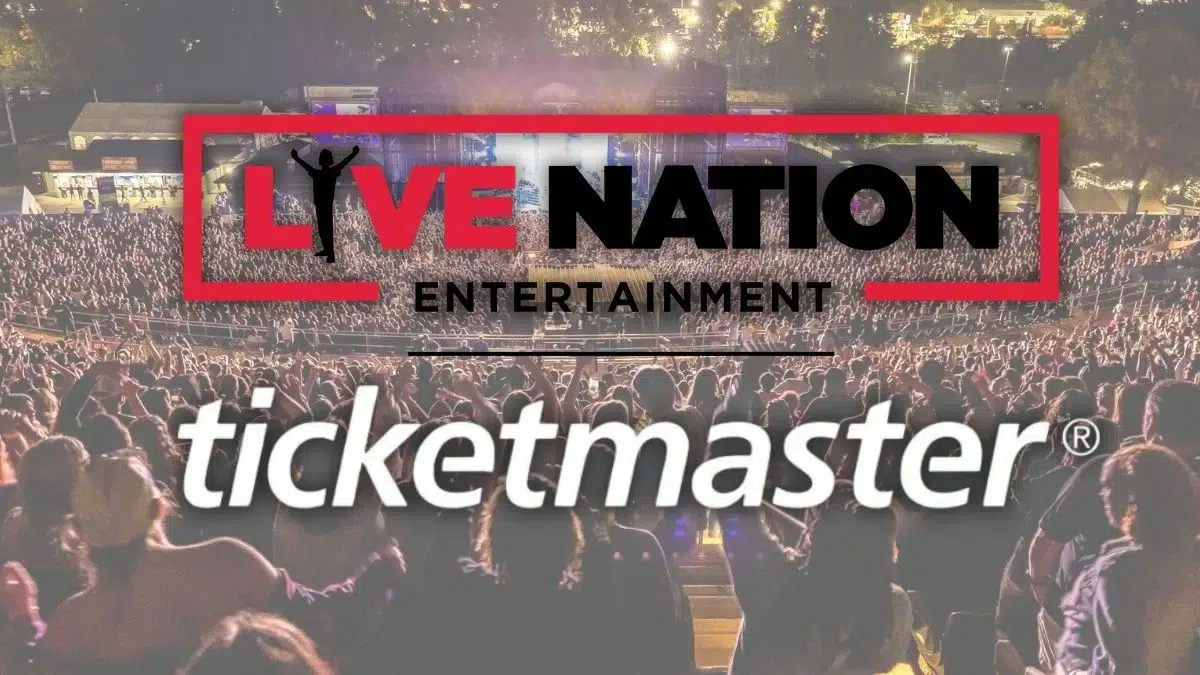Two historic cases now threaten Live Nation and Ticketmaster from different directions: the DOJ’s antitrust lawsuit filed in 2024, which seeks remedies up to a full corporate break-up, and the FTC’s consumer-protection and BOTS Act lawsuit filed this week, which targets deceptive fees and resale practices. Together, they put Live Nation’s vertically integrated empire — and the fee-heavy ticketing system fans have railed against for years — in serious jeopardy.
For the world’s largest live entertainment company, the danger is existential. Regulators are openly talking about forcing Ticketmaster out from under Live Nation, imposing billions of dollars in penalties, and rewriting the rules of both primary ticketing contracts and the entire resale marketplace.
Here’s how the two cases break down:
Case 1 — DOJ Antitrust: “Unwind the monopoly,” end exclusives, restore competition
“It is time to break up Live Nation–Ticketmaster.”
— Attorney General Merrick Garland, announcing the DOJ’s antitrust suit
The DOJ and more than 30 state AGs allege Live Nation–Ticketmaster maintains monopolies across primary ticketing and concert promotion via a self-reinforcing “flywheel,” long-term exclusive ticketing deals with major venues, retaliation risks for venues considering rivals, and acquisitions/arrangements that blunt competition. They say the result is higher fees, fewer choices, and less innovation for fans and artists.
What DOJ is asking the court to do:
- Structural relief up to divestiture. DOJ explicitly asks the court to order the divestiture of, at minimum, Ticketmaster.
- End exclusionary agreements. The case seeks to terminate exclusive venue contracts and enjoin retaliation against venues and promoters.
- Damages for consumers. State AGs also seek treble damages on behalf of natural persons under federal law.
Why that’s existential: A compelled divestiture would dismantle Live Nation’s integrated stack (promoter/venue operator + dominant ticketer), ending the leverage loop DOJ says harms fans and venues. It would also force a new competitive map for primary ticketing at arenas and amphitheaters currently bound to Ticketmaster.
Case 2 — FTC/BOTS Act: Deception, “bait-and-switch” fees, and enabling mass broker buys
The FTC and seven states allege Ticketmaster for years displayed deceptively low list prices, then added mandatory fees late in checkout (often boosting totals by 30–40%+), while tacitly allowing brokers to circumvent posted ticket limits at scale.
Internal material cited in the complaint described the fee display as a “bait and switch” and acknowledged the company “turn[s] a blind eye as a matter of policy” to over-limit broker activity.
How big was the fee machine?
- Consumers paid over $16.4 billion in mandatory fees from 2019–2024.
- Ticketmaster collected $3.7 billion in fees on resale tickets in the same period.
What the FTC is asking the court to do:
- Permanent injunction stopping deceptive pricing and broker-enablement.
- Monetary relief (restitution/disgorgement where available).
- Civil penalties for BOTS Act violations. Each violation can carry a fine of up to ~$50,000, and the complaint highlights brokers using thousands of accounts to scoop up hundreds of thousands of tickets. The potential penalty exposure runs into the billions.
The combined peril: what it could mean for the company
The dollar figures attached to the FTC’s lawsuit are eye-popping. Under the Better Online Ticket Sales (BOTS) Act, every ticket purchased through circumvention of limits or anti-bot measures can be treated as a separate violation. Each carries a potential civil penalty of just over $50,000. In its complaint, the FTC pointed to just five brokers that, with Ticketmaster’s knowledge, controlled more than 6,300 accounts and acquired nearly a quarter-million tickets across some 2,600 events. If regulators treated each of those tickets as a separate violation, the statutory maximum would soar past $12 billion—and that’s from only a handful of the many brokers the agency says were allowed to operate unchecked.
The commission also spotlighted the sheer volume of money flowing through Ticketmaster’s fee engine: consumers paid more than $16 billion in mandatory fees on primary ticket sales between 2019 and 2024, and Ticketmaster collected another $3.7 billion in resale fees. Those numbers serve as a rough benchmark for the kind of monetary relief, disgorgement, or settlement the FTC may seek, even if the final figure is far lower than the theoretical maximum.
Meanwhile, the Justice Department’s antitrust case doesn’t hinge on civil fines. Instead, it seeks structural remedies—including the possibility of forcing Live Nation to divest Ticketmaster entirely. State attorneys general involved in that suit are also pursuing damages on behalf of consumers, which could be tripled under federal law. While harder to pin to a precise dollar amount, those claims could still run into the hundreds of millions, tied to the inflated fees and overcharges the government says flow directly from Live Nation’s monopolistic grip on the market.
Taken together, the two lawsuits leave Live Nation staring at both existential business risks and billion-scale financial exposure. Even if the courts ultimately stop short of ordering a breakup or imposing the maximum statutory fines, the cases threaten to permanently reshape how the company does business—and how much fans pay to see their favorite artists.
Possible endgames
- Break-up + conduct remedies (maximal): Court orders divestiture of Ticketmaster and bans exclusives/retaliation, alongside billions in penalties and strict reforms.
- Heavy conduct relief + monetary hit: Integration remains, but exclusives are loosened, broker loopholes closed, and significant fines paid.
- Negotiated settlement: Concessions like all-in pricing, compliance programs, and large cash settlement, enforced via consent orders.
What ultimately happens to Live Nation and Ticketmaster depends on how the courts view these two cases, but the range of outcomes is dramatic. On one extreme, the DOJ could win a sweeping judgment that forces a break-up of the company—spinning off Ticketmaster and dismantling the web of long-term venue exclusives that fuel its dominance. That kind of ruling would not only upend Live Nation’s vertically integrated model but also reshape the ticketing market for years to come.
A more likely scenario, some observers believe, is that the courts stop short of ordering divestiture but still impose serious restrictions on how the company operates. That could mean opening up venues to multiple ticketing providers, curbing exclusivity deals, and requiring Ticketmaster to change its practices around fee transparency and resale. Coupled with hefty civil penalties from the FTC’s case, such a result would leave the company intact but significantly constrained, with slimmer margins on each ticket sold.
There is also the possibility of a negotiated settlement, where Live Nation agrees to adopt all-in pricing, implement stronger anti-bot systems, and submit to ongoing compliance monitoring in exchange for avoiding a prolonged trial. Such a deal would almost certainly still involve a sizeable financial payout to the government, but it would allow the company to preserve its core structure while making visible concessions to regulators and fans.
In any of these scenarios, the message is the same: the days of business as usual for Live Nation and Ticketmaster may be numbered. Whether through a court-ordered break-up, tough new operating rules, or a costly settlement, the company faces the prospect of a ticketing world that looks very different from the one it has dominated for more than a decade.
Why Live Nation is taking this seriously
The FTC’s complaint quantifies just how lucrative Ticketmaster’s fee engine has been — more than $16 billion in mandatory fees and nearly $4 billion in resale fees since 2019. The DOJ case, meanwhile, puts divestiture explicitly on the table.
For Live Nation, these lawsuits strike at the core of its business model, threatening both its dominance in the market and its most profitable revenue streams.
More Coverage from TicketNews:




